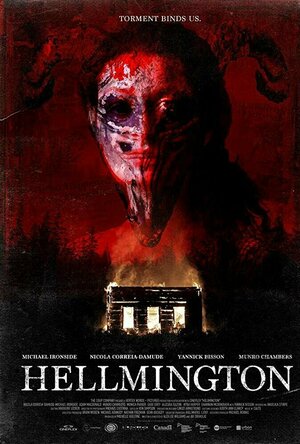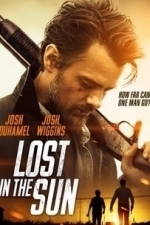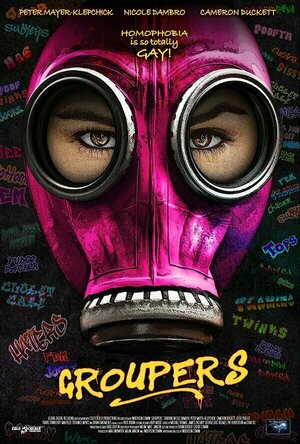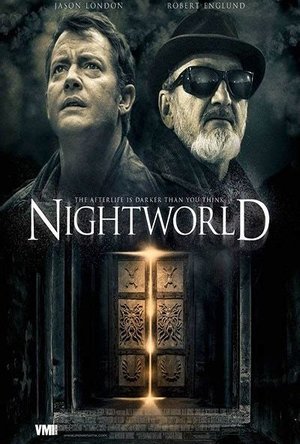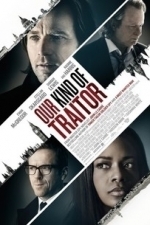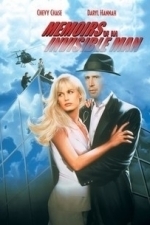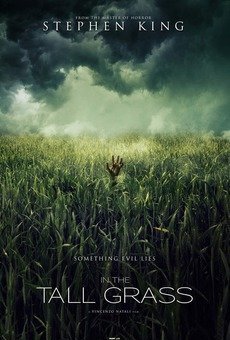Search
Search results
Darren (1599 KP) rated Hellmington (2018) in Movies
Sep 13, 2019
Characters – Samantha Woodhouse is a detective from a big city, she returns home with her father being on his deathbed, to help plan for the next stage, she decides to stick around after learning about missing person that hasn’t ever been solved, where she must face her own connection of her past, while trying to understand what actually happened to the missing girl. Rupert is the Uncle to Samantha, he is the local sheriff that bought her back, only to wish for her to leave the case alone. Professor Freeborn is one of the locals experts that is helping Samantha understand the truth around what might be happening. We do meet a host of potential suspects, or residents that do have a chapter to say when it comes to unlocking the truth.
Performances – This movie revolves around the performance Nicola Correia-Damude gives, she is involved in every scene and you can understand the mindset of her character as she both learns truths and faces pasts through the film. Michael Ironside might well be the biggest name in the film and does everything we need him to do. The rest of the cast is strong through the film too.
Story – The story follows a detective that returns home for her father’s funeral, only to find herself investigating a missing persons case, one that does mean she must face her own past to learn the truth. This is an interesting story because it does show us how your past can come back to haunt you and investigating a bigger case can only make you see the people in your life in a different light. We do follow just one character which will show us how they are learning about the case, just as we are, which is nice too be left in the dark about certain parts instead of being given all answers. We do get pushed down different ideas of what is happening which does keep us guessing and will leave shocked by the truth.
Horror – The film does use horror elements which involve how the Samantha is experience strange events while trying to uncover the truth.
Settings – The film is set in one locations which is the hometown of the Samantha which is filled with memories, some she liked, others she doesn’t want to.
Special Effects – The effects in the film are strong when needed, we don’t use them too often which isn’t needed.
Scene of the Movie – The first visit of the stranger.
That Moment That Annoyed Me – Slightly rushed finished.
Final Thoughts – This is an interesting horror that deals with the investigation into a missing person, it has a wonderful leading lady performance and does keep you guessing.
Overall: Strong horror investigation.
Performances – This movie revolves around the performance Nicola Correia-Damude gives, she is involved in every scene and you can understand the mindset of her character as she both learns truths and faces pasts through the film. Michael Ironside might well be the biggest name in the film and does everything we need him to do. The rest of the cast is strong through the film too.
Story – The story follows a detective that returns home for her father’s funeral, only to find herself investigating a missing persons case, one that does mean she must face her own past to learn the truth. This is an interesting story because it does show us how your past can come back to haunt you and investigating a bigger case can only make you see the people in your life in a different light. We do follow just one character which will show us how they are learning about the case, just as we are, which is nice too be left in the dark about certain parts instead of being given all answers. We do get pushed down different ideas of what is happening which does keep us guessing and will leave shocked by the truth.
Horror – The film does use horror elements which involve how the Samantha is experience strange events while trying to uncover the truth.
Settings – The film is set in one locations which is the hometown of the Samantha which is filled with memories, some she liked, others she doesn’t want to.
Special Effects – The effects in the film are strong when needed, we don’t use them too often which isn’t needed.
Scene of the Movie – The first visit of the stranger.
That Moment That Annoyed Me – Slightly rushed finished.
Final Thoughts – This is an interesting horror that deals with the investigation into a missing person, it has a wonderful leading lady performance and does keep you guessing.
Overall: Strong horror investigation.
Darren (1599 KP) rated Lost in the Sun (2015) in Movies
Sep 13, 2019
Characters – John is a crook, he seems to be freshly out of prison needing to payback debts for protection in prison, he offers to take Louis to his grandparents and starts using him to help pay of the debts, showing him the life of crime, it is clear early on that he does have a connection to Louis, we are left to see what that connection is. Louis is the teenager that has been left orphaned when his mother dies, he reluctantly joins John in the cross-country trip where he gets to learn certain things he wouldn’t have before, including how to drive and how to shoot a gun. We do only meet characters along the way, some help and most are the people they are robbing.
Performances – Josh Duhamel is good in the leading role, it is one of his better performances as she shows how conflicted his character is and just how desperate he is to clear his debts, while trying to guide the teenager. Josh Wiggins is great in his role of the film, he gets to show moments of grief and moments of moving on with life as he is the one that needs to learn the biggest life lessons. The rest of the cast are solid without needing to do that much.
Story – The story here comes down to one man trying to make up for his own mistakes in life by helping a young teenage boy across country to live with his grandparents only along the way we see him teach him life lessons which could one day prepare him for the real-world. This gives us a chance to see a redemption story while also giving us a coming-of-age chapter in Louis’s life, this isn’t going to break any ground in the genre and does everything it needs to do for the characters. We do get moments of questioning moments of what Louis is forced to do and for the most we don’t get enough time to look at the crimes that have left John where he is in life.
Action – The action in the film is simple, we get a couple of weak chases and robberies, they are easy to watch and barely break into a sweat.
Settings – The film takes us across America, we don’t hit any landmarks which just shows us small town after small town or open roads.
Scene of the Movie – The final moment.
That Moment That Annoyed Me – Boys don’t just want to drive cars and shoot guns.
Final Thoughts – This is a simple coming of age film, it checks the boxes well without doing anything we haven’t seen before.
Overall: Coming-of-age 101
Performances – Josh Duhamel is good in the leading role, it is one of his better performances as she shows how conflicted his character is and just how desperate he is to clear his debts, while trying to guide the teenager. Josh Wiggins is great in his role of the film, he gets to show moments of grief and moments of moving on with life as he is the one that needs to learn the biggest life lessons. The rest of the cast are solid without needing to do that much.
Story – The story here comes down to one man trying to make up for his own mistakes in life by helping a young teenage boy across country to live with his grandparents only along the way we see him teach him life lessons which could one day prepare him for the real-world. This gives us a chance to see a redemption story while also giving us a coming-of-age chapter in Louis’s life, this isn’t going to break any ground in the genre and does everything it needs to do for the characters. We do get moments of questioning moments of what Louis is forced to do and for the most we don’t get enough time to look at the crimes that have left John where he is in life.
Action – The action in the film is simple, we get a couple of weak chases and robberies, they are easy to watch and barely break into a sweat.
Settings – The film takes us across America, we don’t hit any landmarks which just shows us small town after small town or open roads.
Scene of the Movie – The final moment.
That Moment That Annoyed Me – Boys don’t just want to drive cars and shoot guns.
Final Thoughts – This is a simple coming of age film, it checks the boxes well without doing anything we haven’t seen before.
Overall: Coming-of-age 101
Darren (1599 KP) rated Groupers (2019) in Movies
Sep 16, 2019
Characters – Meg is the mastermind behind the plan, she wants to use the experiment for her studies and to get revenge on the bullies from her brother’s school experience, she does remain in control of the situation for the most part, until we learn she isn’t alone in her plan. Brad is the typical high school jock, he thinks he is gods gift to women and will pick on anybody different, including pushing homosexuals to limits they shouldn’t, he isn’t willing to accept them in his world and does struggle to deal with the situation. Dylan is the other bully, he is the type of bully that just follows the leader and when put in the situation the pair find themselves in, seems to start showing his true nature, one that Brad doesn’t like. Orin is the brother that was the victim of the hate crime, what happened to him pushes Meg into her actions. We do also have a couple of groups of colourful characters that put a spanner in the works of the plan.
Performances – We have an excellent cast here, with Nicole Dambro taking centre stage on the more serious side of the film, while Cameron Duckett getting the most laughs from the main cast. Peter Mayer-Klepchick does a great job too and for the final act we do have everyone hitting the high points in the performance.
Story – The story here follows a woman that wants to experiment on a couple of school bullies that treated her brother homophobically and wants to prove that you can’t choose whether to be homosexual or not. This does start by coming off like a twisted revenge styled movie, with the story coming off like that, it is the second half of the film where we get to put over the message that was wanted to put forward, even if it is done with the comical tone at times. The story does have the prospective rewind idea, which does give each scene a new light, which is good to see. This is a story that does go in a different direction that you would expect and will surprise you at times.
Comedy – The comedy does come in strong in the second half of the film, where everything adds up and gives us laugh in every line.
Settings – The film is set entirely in one location, the pool in the abandoned neighbourhood, it does give the events a real-time feel too.
Scene of the Movie – Durant settles everything.
That Moment That Annoyed Me – Certain moments do get repeated too much.
Final Thoughts – This is a funny comedy that still manages to get the important message across too. It has great performance from the whole cast too.
Overall: Comedy that will make you laugh a lot.
Performances – We have an excellent cast here, with Nicole Dambro taking centre stage on the more serious side of the film, while Cameron Duckett getting the most laughs from the main cast. Peter Mayer-Klepchick does a great job too and for the final act we do have everyone hitting the high points in the performance.
Story – The story here follows a woman that wants to experiment on a couple of school bullies that treated her brother homophobically and wants to prove that you can’t choose whether to be homosexual or not. This does start by coming off like a twisted revenge styled movie, with the story coming off like that, it is the second half of the film where we get to put over the message that was wanted to put forward, even if it is done with the comical tone at times. The story does have the prospective rewind idea, which does give each scene a new light, which is good to see. This is a story that does go in a different direction that you would expect and will surprise you at times.
Comedy – The comedy does come in strong in the second half of the film, where everything adds up and gives us laugh in every line.
Settings – The film is set entirely in one location, the pool in the abandoned neighbourhood, it does give the events a real-time feel too.
Scene of the Movie – Durant settles everything.
That Moment That Annoyed Me – Certain moments do get repeated too much.
Final Thoughts – This is a funny comedy that still manages to get the important message across too. It has great performance from the whole cast too.
Overall: Comedy that will make you laugh a lot.
Darren (1599 KP) rated Nightworld (2017) in Movies
Sep 16, 2019
Characters – Brett Anderson is a grief stricken for police officer, he retired from the force after his wife’s death, he takes a job as a security guard in an apartment in Bulgaria which leads him to get caught up in a mystery about the apartment which brings him past back to haunt him. Jacob is a former guard that lost his eye sight, he knows the mystery about the apartment and helps guide Brett through the strange events. Martin is the apartment manager and needs to find a new guard to watch over any problems in the apartment when he is away. Zara is the waitress at the local café that offer a romantic angle for Brett, while filling in the blanks about the history of the apartment.
Performances – Jason London is solid enough in the leading role, most of what he does is ask questions which is how the audience must learn what is going on. Robert Englund as the elderly figure that is trying to help works well because he is the biggest draw for the film. Gianna Capaldi and Lorina Kamburova are both fine they never get out of first gear for their performances though.
Story – The story here follows a man that needs to rebuild his life, get given a job as a security guard for an apartment building that has secrets he can’t even imagine. The pace of the story is slow, because we have a lot of building up with little to no hints to what the big conclusion will be, the final third of the film lets everything go, making the early parts of the story more interesting, the time loss angle does feel tagged in for no reason and by the end you still won’t completely understand what just happened. The reveals in the film are big, though they could be considered overkill for what could have be a much more subtle story.
Horror – The horror comes from the nightmares Brett suffers before the big reveal in the final act which shows us just what has been going on.
Settings – The whole film is set in one building, it shows how the layers can hold secrets and the mystery about the building is key t the story being told.
Special Effects – The effects in the film are used well when needed, we don’t go over the top with them and the best one are used for the final act.
Scene of the Movie – Behind the door.
That Moment That Annoyed Me – Starts too slow for the ending.
Final Thoughts – This is a slow burning horror thriller, it does reward us with a manic ending which is worth the wait for, only it does take too long to get there with little hints to help us understand the ending.
Overall: Slow though rewarding.
Performances – Jason London is solid enough in the leading role, most of what he does is ask questions which is how the audience must learn what is going on. Robert Englund as the elderly figure that is trying to help works well because he is the biggest draw for the film. Gianna Capaldi and Lorina Kamburova are both fine they never get out of first gear for their performances though.
Story – The story here follows a man that needs to rebuild his life, get given a job as a security guard for an apartment building that has secrets he can’t even imagine. The pace of the story is slow, because we have a lot of building up with little to no hints to what the big conclusion will be, the final third of the film lets everything go, making the early parts of the story more interesting, the time loss angle does feel tagged in for no reason and by the end you still won’t completely understand what just happened. The reveals in the film are big, though they could be considered overkill for what could have be a much more subtle story.
Horror – The horror comes from the nightmares Brett suffers before the big reveal in the final act which shows us just what has been going on.
Settings – The whole film is set in one building, it shows how the layers can hold secrets and the mystery about the building is key t the story being told.
Special Effects – The effects in the film are used well when needed, we don’t go over the top with them and the best one are used for the final act.
Scene of the Movie – Behind the door.
That Moment That Annoyed Me – Starts too slow for the ending.
Final Thoughts – This is a slow burning horror thriller, it does reward us with a manic ending which is worth the wait for, only it does take too long to get there with little hints to help us understand the ending.
Overall: Slow though rewarding.
Darren (1599 KP) rated Our Kind of Traitor (2016) in Movies
Sep 16, 2019
Characters – Perry is a university professor, he is trying to make amends with his wife on a romantic holiday, he reluctantly gets involved in the information trade with his good nature being used by both sides. Gail is the lawyer wife of Perry, she has become distant from him while still loving him and does question his decision to help Dima. Dima is the Russian mafia handling the accounts, but he wants out to help his own children become safe, he uses his connection with Perry to get MI6 involved in the truth. Hector is the MI6 agent that is willing to work with Dima for the information in exchange for the family, he does have his own grudge with the man they are trying to take down too.
Performances – The performances through the film show us just what Le Carre does with his characters, he gives them good moments, without making them stand out. McGregor is good, but you feel a younger up and comer would have been perfect here, Harris is good and doesn’t put a foot wrong, while Skarsgard enjoys his role, shady but loyal. Damian Lewis brings back his true English role which at times does feel weird knowing how often he has been an American character recently.
Story – The story comes from a John Le Carre novel, so instantly we know we are going to get a thriller that keeps us guessing on what everyone’s motivation will be. The idea that a normal couple get mixed up in the middle of an international information exchange is different and does work for the film because it helps us stay on edge thinking and wondering if they do have a bigger involvement. The story does feel like that one moment to make it great is missing, as everything does end up feeling just normal and good only.
Crime – The crime side of the film follows a criminal looking for a safe way out of the life for his family in exchange for bringing down the mafia’s dealings in London.
Settings – The film splits the settings between London, for the deals, Morocco for the exchanges and the final location for the next chapter of the lives, they work because they show how this world would operate.
Scene of the Movie – The escape.
That Moment That Annoyed Me – It lacks the edge of your seat style of Le Carre novels have given us.
Final Thoughts – This is a solid thriller even if it lacks that final factor to make it one of the best ones, it does the by the book material well, but never develops the characters enough to understand the situation they put themselves in.
Overall: Simple thriller.
Performances – The performances through the film show us just what Le Carre does with his characters, he gives them good moments, without making them stand out. McGregor is good, but you feel a younger up and comer would have been perfect here, Harris is good and doesn’t put a foot wrong, while Skarsgard enjoys his role, shady but loyal. Damian Lewis brings back his true English role which at times does feel weird knowing how often he has been an American character recently.
Story – The story comes from a John Le Carre novel, so instantly we know we are going to get a thriller that keeps us guessing on what everyone’s motivation will be. The idea that a normal couple get mixed up in the middle of an international information exchange is different and does work for the film because it helps us stay on edge thinking and wondering if they do have a bigger involvement. The story does feel like that one moment to make it great is missing, as everything does end up feeling just normal and good only.
Crime – The crime side of the film follows a criminal looking for a safe way out of the life for his family in exchange for bringing down the mafia’s dealings in London.
Settings – The film splits the settings between London, for the deals, Morocco for the exchanges and the final location for the next chapter of the lives, they work because they show how this world would operate.
Scene of the Movie – The escape.
That Moment That Annoyed Me – It lacks the edge of your seat style of Le Carre novels have given us.
Final Thoughts – This is a solid thriller even if it lacks that final factor to make it one of the best ones, it does the by the book material well, but never develops the characters enough to understand the situation they put themselves in.
Overall: Simple thriller.
Darren (1599 KP) rated Killer Sofa (2019) in Movies
Sep 16, 2019
Characters – Francesca is a dancer that has had problems in the past with the men in her life, most have become stalkers, with her needing to put restraining orders on them, she is left a recliner from one, as the police look into her past to see if she has a connection to the murder of one of them. Maxi is the best friend of Francesca, she supports her on a daily basis and will stand with her in her fight against the sofa. Inspector Gravy is leading the investigation into the crimes which sees him spending time with Francesca learning about her past. Rabbi Jack is Maxi’s grandfather that gets an uneasy vision from the sofa and starts trying to figure out how he could stop the evil behind it.
Performances – The lead in the film is Piimio Mei and she does well in the leading role, as the one being haunted by the soda, seeing her friends taken from around her. The rest of the cast are strong with what they are doing, they do know this does have elements of cheesy horror, which does work for the film.
Story – The story here follows the unusual event surrounding a sofa that starts killing people at the woman that finds herself the main target of the evil needing to stop it before their friends get taken. This is a film that knows exactly what it wants to be, a wildly over the top story that isn’t afraid to go into the full cheesy area, which will get the story over to the level it needs to. For a horror it is a film that follows the traditions when it comes to picking off the victims one at a time, with an element of the story behind the having a supernatural feel.
Horror – The horror side of the film does pick up like most serial killer style slashers, with one victim being alone getting picked off by the killer, in this case, the sofa, which does it look creepy throughout.
Settings – The film uses the apartment settings to show how the sofa can move around without looking completely out of place, using the environment to help with its kills.
Special Effects – The effects are mixed with the fact they make the sofa look terrifying being a huge plus, it is the CGI moments that look like the weakest part of the film.
Scene of the Movie – The sofa look.
That Moment That Annoyed Me – The CGI moments.
Final Thoughts – This is a horror comedy that understands completely what it wants to be, it will get laughable kills from a sofa that uses its how frame as a weapon.
Overall: Funny horror comedy.
Performances – The lead in the film is Piimio Mei and she does well in the leading role, as the one being haunted by the soda, seeing her friends taken from around her. The rest of the cast are strong with what they are doing, they do know this does have elements of cheesy horror, which does work for the film.
Story – The story here follows the unusual event surrounding a sofa that starts killing people at the woman that finds herself the main target of the evil needing to stop it before their friends get taken. This is a film that knows exactly what it wants to be, a wildly over the top story that isn’t afraid to go into the full cheesy area, which will get the story over to the level it needs to. For a horror it is a film that follows the traditions when it comes to picking off the victims one at a time, with an element of the story behind the having a supernatural feel.
Horror – The horror side of the film does pick up like most serial killer style slashers, with one victim being alone getting picked off by the killer, in this case, the sofa, which does it look creepy throughout.
Settings – The film uses the apartment settings to show how the sofa can move around without looking completely out of place, using the environment to help with its kills.
Special Effects – The effects are mixed with the fact they make the sofa look terrifying being a huge plus, it is the CGI moments that look like the weakest part of the film.
Scene of the Movie – The sofa look.
That Moment That Annoyed Me – The CGI moments.
Final Thoughts – This is a horror comedy that understands completely what it wants to be, it will get laughable kills from a sofa that uses its how frame as a weapon.
Overall: Funny horror comedy.
Darren (1599 KP) rated Memoirs of an Invisible Man (1992) in Movies
Oct 14, 2019
Characters – Nick Halloway is a fast-talking businessman that has been getting away with slacking through his job for years now, after another session on the drinks, he looks to skive off, only to get caught in the middle of an experiment which turns him invisible, Nick must figure out who he can trust to help him after the CIA look to hunt him down to use him for their own benefit. He isn’t the most interesting character, he doesn’t come off as funny as it seems he should be either. Alice is the new woman that comes into Nick’s life, she is the one he turns to for help as she is prepared to listen to his story over most other people. David Jenkins is the man hunting down Nick, he is a CIA agent that will do whatever it takes to add to the security of the country, seeing Nick as the next generation of secret agent.
Performances – Chevy Chase does feel slightly mis-cast in this role, he doesn’t seem to handle the comedy on the level it is meant to be coming from his character. Daryl Hannah does all she needs to as the love interest, she doesn’t need to do much either. Sam Neill is highlight of the performances with just how he handles the evil agent.
Story – The story follows a man that gets turn invisible in a mysterious event, seeing him being chased down by the government while he tries to figure out how to get out of his situation. This is an interesting spin on the invisible man story, it does try to make the story a comedy which is where the story falls short, because it is an unlikable character that gets turn invisible rather than somebody whose experiment going wrong. Nick doesn’t just anything to help himself, which disappoints, it does feel kind of cheesy and by the end you will feel like not everything is answered.
Comedy/Sci-Fi – The comedy misses more often than hitting, it just doesn’t seem smooth. The sci-fi elements don’t get bought to the front with incident happening and that being it.
Settings – The film is set in San Francisco which does always make for a solid back drop for any movie.
Special Effects – The effects in the film do feel great for the time with certain moments, the make-up shot is the highlight because of camera angle.
Scene of the Movie – Let’s try make up.
That Moment That Annoyed Me – The comedy.
Final Thoughts – This is a comedy that does miss a lot of the jokes and ends up feeling flatter than it should have been.
Overall: Disappointing comedy.
Performances – Chevy Chase does feel slightly mis-cast in this role, he doesn’t seem to handle the comedy on the level it is meant to be coming from his character. Daryl Hannah does all she needs to as the love interest, she doesn’t need to do much either. Sam Neill is highlight of the performances with just how he handles the evil agent.
Story – The story follows a man that gets turn invisible in a mysterious event, seeing him being chased down by the government while he tries to figure out how to get out of his situation. This is an interesting spin on the invisible man story, it does try to make the story a comedy which is where the story falls short, because it is an unlikable character that gets turn invisible rather than somebody whose experiment going wrong. Nick doesn’t just anything to help himself, which disappoints, it does feel kind of cheesy and by the end you will feel like not everything is answered.
Comedy/Sci-Fi – The comedy misses more often than hitting, it just doesn’t seem smooth. The sci-fi elements don’t get bought to the front with incident happening and that being it.
Settings – The film is set in San Francisco which does always make for a solid back drop for any movie.
Special Effects – The effects in the film do feel great for the time with certain moments, the make-up shot is the highlight because of camera angle.
Scene of the Movie – Let’s try make up.
That Moment That Annoyed Me – The comedy.
Final Thoughts – This is a comedy that does miss a lot of the jokes and ends up feeling flatter than it should have been.
Overall: Disappointing comedy.
Darren (1599 KP) rated In the Tall Grass (2019) in Movies
Oct 14, 2019
Characters – Becky is the pregnant lady travelling across country to start a life with her baby, her maternal instincts take over when she hears a young boy calling for help in the grass, which sees her get trapped, she experiences different pregnancy problems while trying to find her way out. Cal is the protect brother, who couldn’t win a fight to save his life, he wants his sister to date somebody with a future and an education. Ross is the father of Tobin who has gone too far into the grass before, he knows what is happening making him a real threat to the rest. Tobin is the little boy that is calling out for help, he desperate cries for help lead to the events of the film as Becky and Cal go in search for the answer.
Performances – When it comes to the performances this is a hard one to hate or enjoy anybody in the film, nobody is bad, Laysla De Oliveira and Avery Whitted as the brother sister don’t have the best chemistry. Patrick Wilson does go full crazy for parts of the film and it is the best part to watch.
Story – The story here follows a group of people that lost in tall grass which seems to have a mind of itself which will see them needing to figure out how to make it out alive. This is a story that does do a lot of confusing things because we do try to capture the magic of ‘Triangle’ only for it to be way to confusing for the most part because we are going over and over through different points of view which just doesn’t give us enough to work with because a lot happens in pitch black too which doesn’t make it clear just what was happening. This is a story you could break down and figure out what happened, but it isn’t a causal watch when figuring out the loops.
Horror – The horror in the film is meant to come from the unknown in the grass and just what happens within the grass.
Settings – The film wants to use the tall grass for the settings, I guess this is an American thing for it to be scary.
Special Effects – The effects used in the film are mostly shock for gore, which are fine, but just don’t shock the way they want too.
Scene of the Movie – Ross finds a way in.
That Moment That Annoyed Me – Too many attempts to create a reset.
Final Thoughts – This is a horror that just doesn’t get to any horror levels, if you have seen ‘Triangle’ you will have seen a much more interesting and better version of this story.
Overall: Just not Triangle.
Performances – When it comes to the performances this is a hard one to hate or enjoy anybody in the film, nobody is bad, Laysla De Oliveira and Avery Whitted as the brother sister don’t have the best chemistry. Patrick Wilson does go full crazy for parts of the film and it is the best part to watch.
Story – The story here follows a group of people that lost in tall grass which seems to have a mind of itself which will see them needing to figure out how to make it out alive. This is a story that does do a lot of confusing things because we do try to capture the magic of ‘Triangle’ only for it to be way to confusing for the most part because we are going over and over through different points of view which just doesn’t give us enough to work with because a lot happens in pitch black too which doesn’t make it clear just what was happening. This is a story you could break down and figure out what happened, but it isn’t a causal watch when figuring out the loops.
Horror – The horror in the film is meant to come from the unknown in the grass and just what happens within the grass.
Settings – The film wants to use the tall grass for the settings, I guess this is an American thing for it to be scary.
Special Effects – The effects used in the film are mostly shock for gore, which are fine, but just don’t shock the way they want too.
Scene of the Movie – Ross finds a way in.
That Moment That Annoyed Me – Too many attempts to create a reset.
Final Thoughts – This is a horror that just doesn’t get to any horror levels, if you have seen ‘Triangle’ you will have seen a much more interesting and better version of this story.
Overall: Just not Triangle.

12 Steps Companion
Lifestyle and Health & Fitness
App
**FEATURED ON GOOD MORNING AMERICA** The ORIGINAL & MOST COMPREHENSIVE sobriety tool available for...

Preglife - Gravid & Baby
Health & Fitness and Medical
App
Preglife includes both Pregnancy Calendar and BabyApp. So now you can monitor your baby's...
